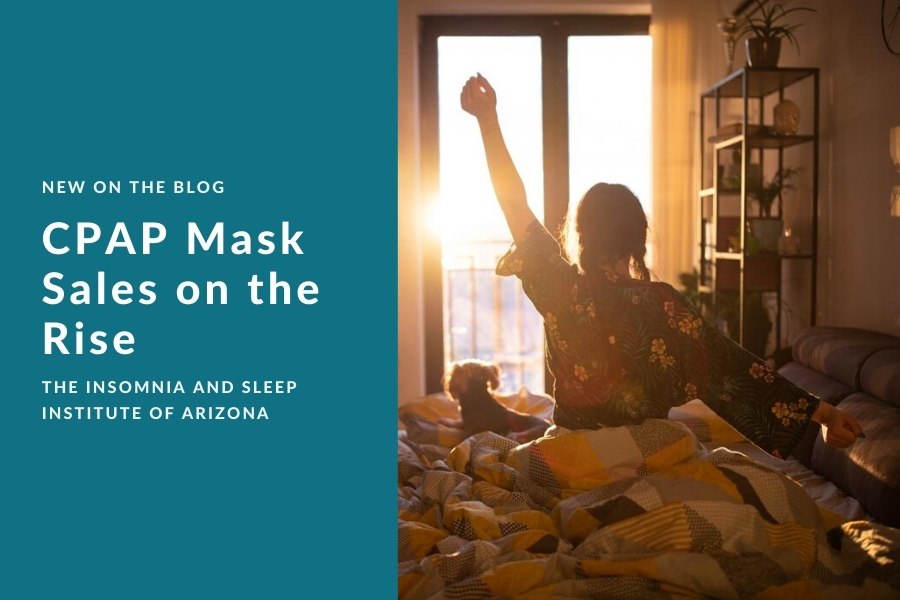According to Fisher & Paykel Healthcare, a New Zealand maker of CPAP masks, demand and sales for these accessories have been on the rise. This is no surprise to us at The Insomnia and Sleep Institute of Arizona, where we treat every sleep disorder including obstructive sleep apnea (OSA), a common disorder that is best treated with CPAP. OSA affects millions of people, children and adults alike, but the vast majority of those with OSA don’t know they have it. OSA is linked to several co-morbidities from stroke to diabetes and cardiovascular disease, as well as a shortened lifespan. However, you need a sleep expert to diagnose OSA and that is the barrier for many people.
We do not require a referral for consultations or treatments, and every consult at our outcome-driven facility is with a sleep specialist who can diagnose sleep disorders—which then informs testing and treatment if appropriate. Diagnosing OSA usually requires an overnight test in a sleep lab so that sleep can be monitored closely. If you or your child has OSA, it can often be managed with lifestyle changes and CPAP therapy. Obesity is a common trigger for OSA, as is alcohol consumption, so changing these facets of your life can sometimes “get rid of” OSA. In other cases, CPAP therapy can help you achieve quality sleep and today’s technology makes it easy to properly adhere to CPAP best practices.
CPAP is Soaring
Fisher & Paykel reports that, “growth in sales of our OSA masks is currently tracking above our first-half growth rate despite supply constraints of treatment hardware in the market.” CPAP has long been the gold standard in treating OSA, and in the rare case that it fails an implant might be an option. The Insomnia and Sleep Institute, led by Dr. Ruchir P. Patel, is one of the few clinics that offer this option, although CPAP must have failed as a treatment modality first. In fact, Dr. Patel often collaborates with the makers of the Inspire implant and is a key consultant for their research and company. If you have OSA or suspect you do, know that there are options available.
CPAP works well for most people, but lack of adherence to how it should be used (such as failing to wear the mask every time you sleep) of course derails the impact. The most common reason someone does not adhere to CPAP best practices is because of an ill-filling accessory, such as a mask. This is why it’s so important to work with a sleep expert who can help you choose the right kind of mask, tubing, and machinery for you and help ensure that it fits properly. Those who travel often also might struggle with CPAP adherence, but today’s options include many smaller technologies including some CPAP machines that are specifically made for traveling.
Why CPAP Matters
OSA occurs when the airway gets blocked during sleep. This can happen for several reasons, from too much fat around the neck (so that the airway gets tightened) to muscles in the throat that are too relaxed during sleep. Many OSA patients are surprised to find out, post-sleep study, just how often they stop or pause breathing throughout the night. In many cases, OSA patients are made aware of this issue because a bedmate notices. However, for those who sleep alone, it can be difficult to tell if you have the common signs of snoring, snorting, or gasping while asleep.
Common symptoms of OSA while awake include a headache upon waking and feeling excessively tired no matter how much sleep you think you get. The good news is that CPAP therapy is safe, effective, and today can be largely customized to fit your preferences and lifestyle. Whether you require CPAP alone, are perhaps a candidate for an implant in the future, or need to adjust your lifestyle along with CPAP, we will work with you to determine a plan of action that aligns with your needs. Contact The Insomnia and Sleep Institute today to schedule a consultation. You can call the office or complete the online form for a quick response.





